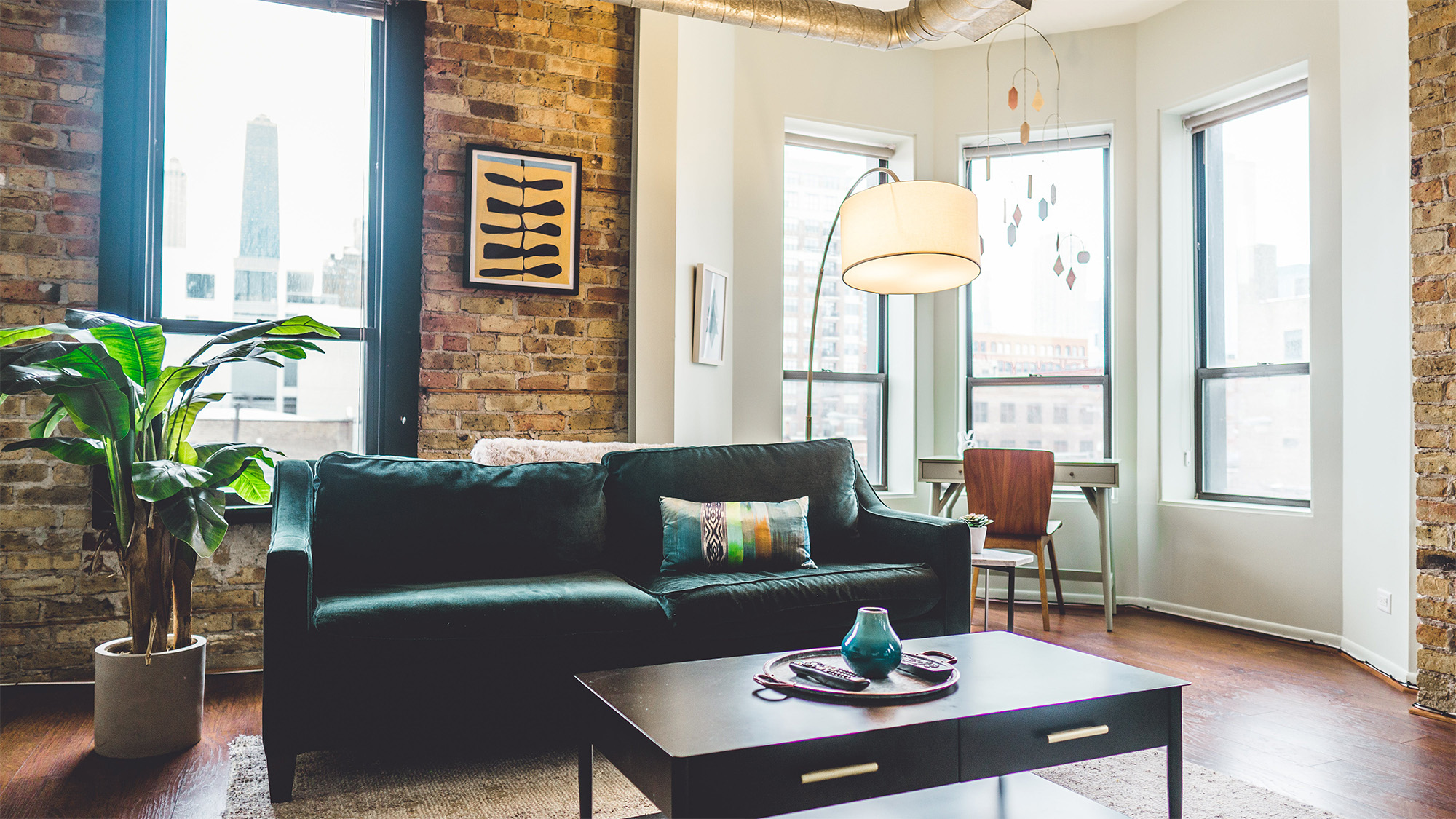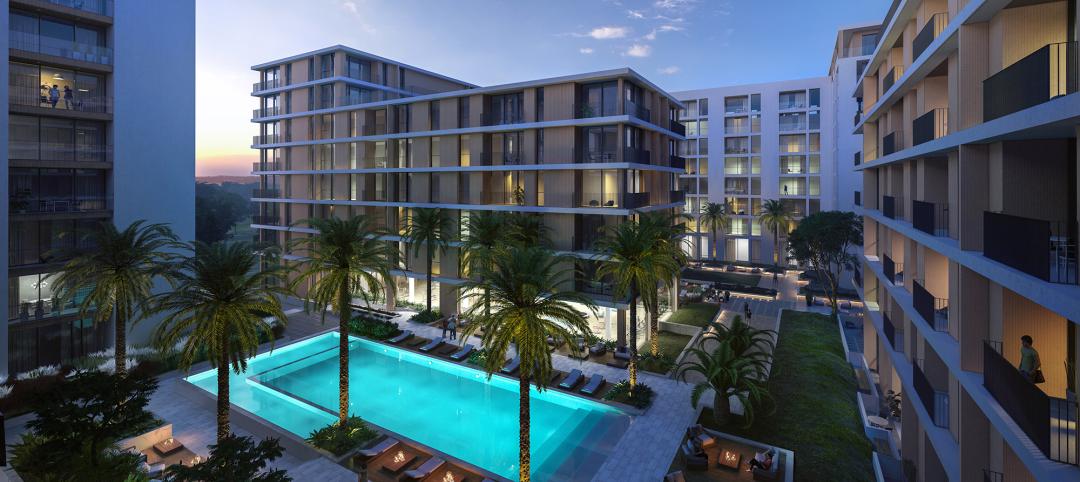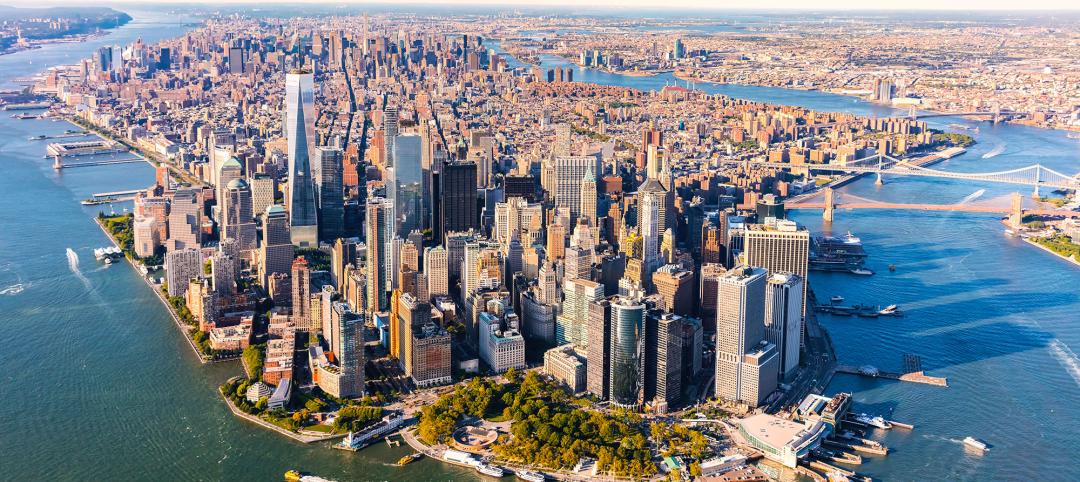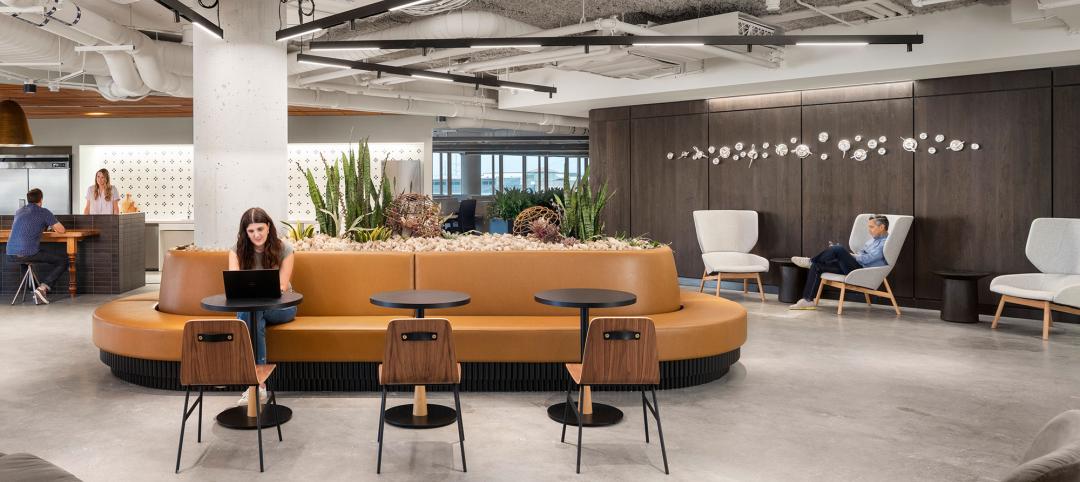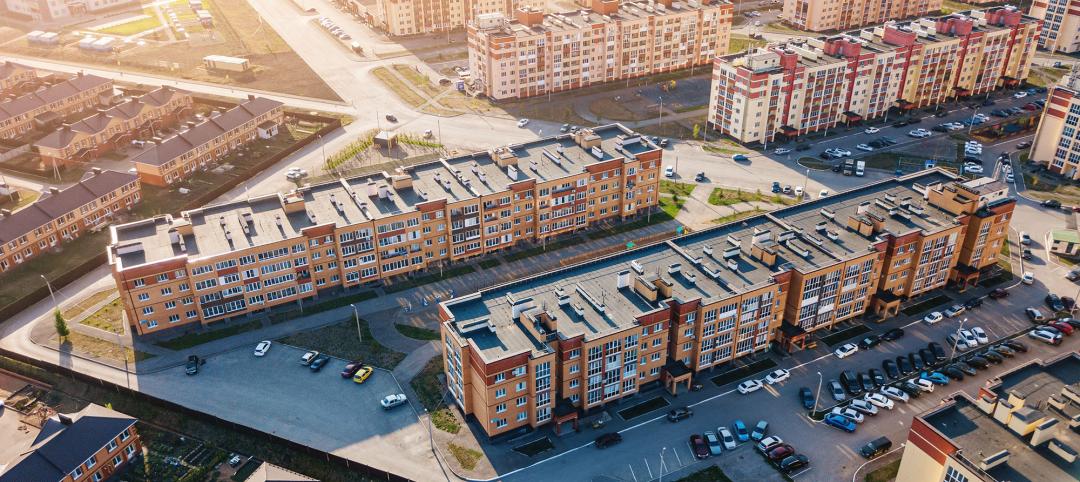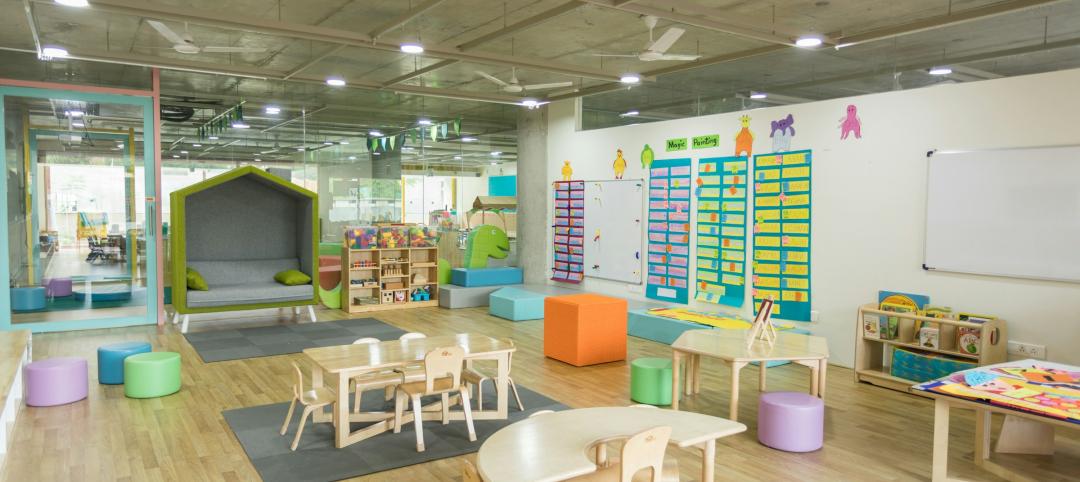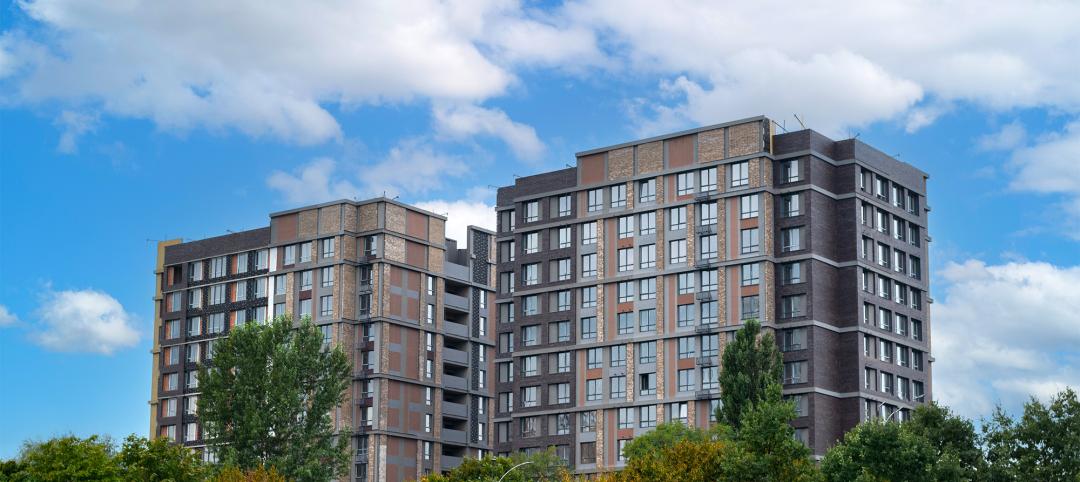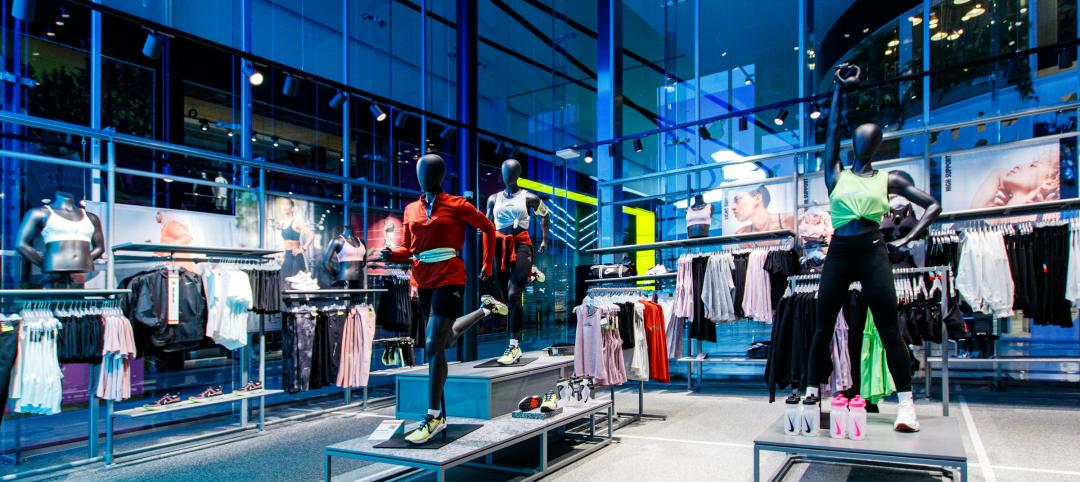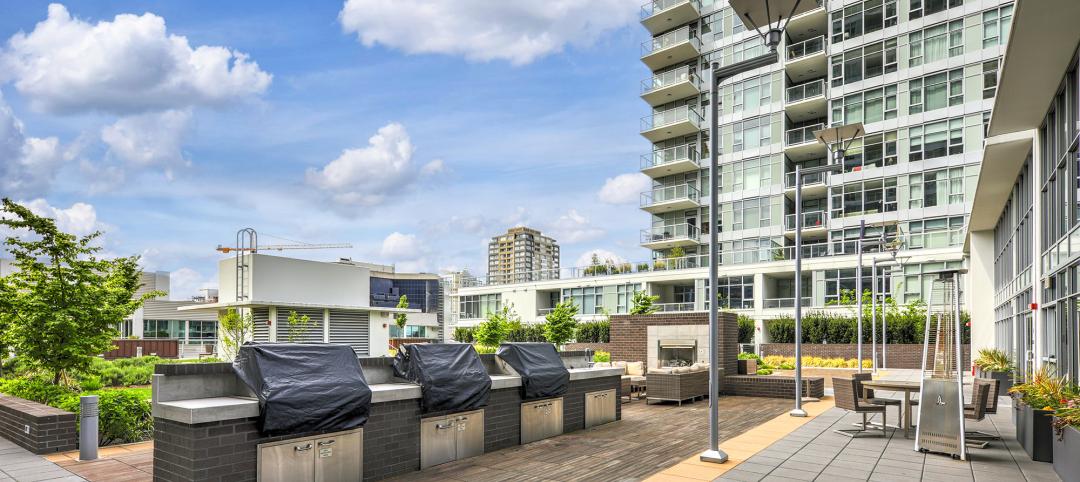The Trends Outlook Report by the American Society of Interior Designers (ASID) is the first of a three-part outlook series on interior design. The report is a collection of research from the U.S. Census Bureau, the Pew Research Center, and ASID's own survey research.
The findings of the 2024 report show an ever-present importance for community, connection, and authenticity. Here is the breakdown of all 11 design trends:
Top 11 Interior Design Trends for 2024
1. Living with and learning from Gen Z
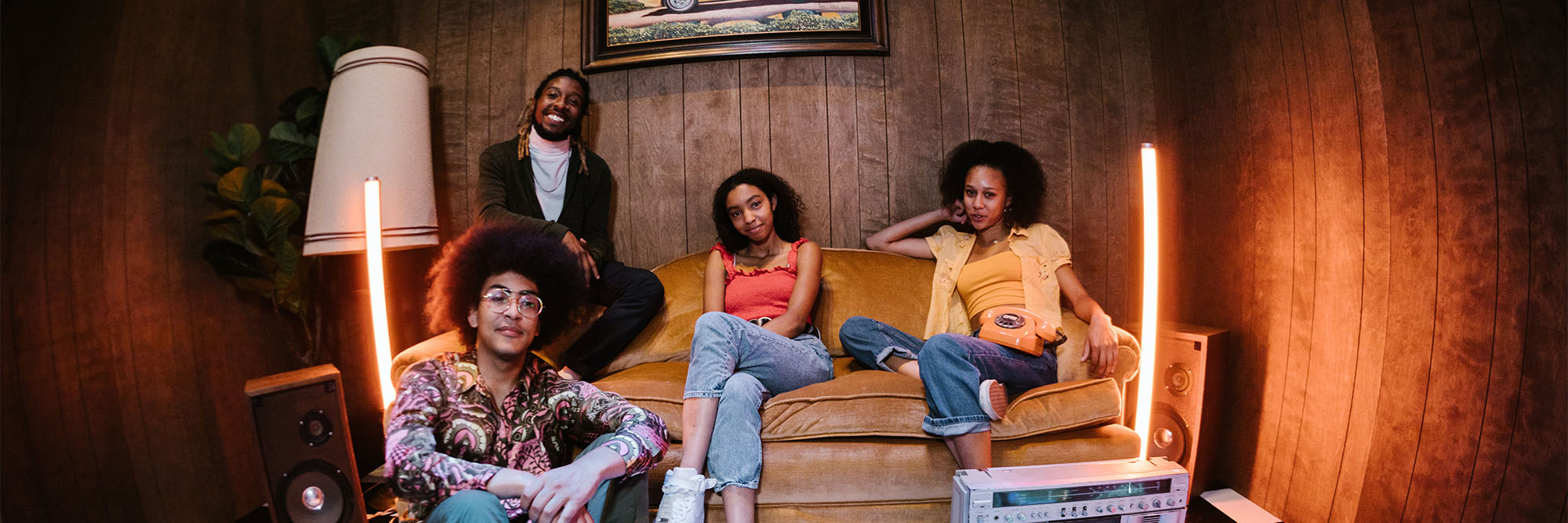
Gen Z, shaped by a unique set of challenges and experiences, seeks genuine connections and prioritizes spaces that foster community and social impact. Designers need to be mindful of their evolving values and concerns to create meaningful environments that resonate with this influential generation.
“Gen Z seeks genuine connections, and as this generation enters and occupies consumer culture, designers should be familiar with their evolving empathies and concerns.” — The Trends Outlook Report
2. Solo living and seeking connection
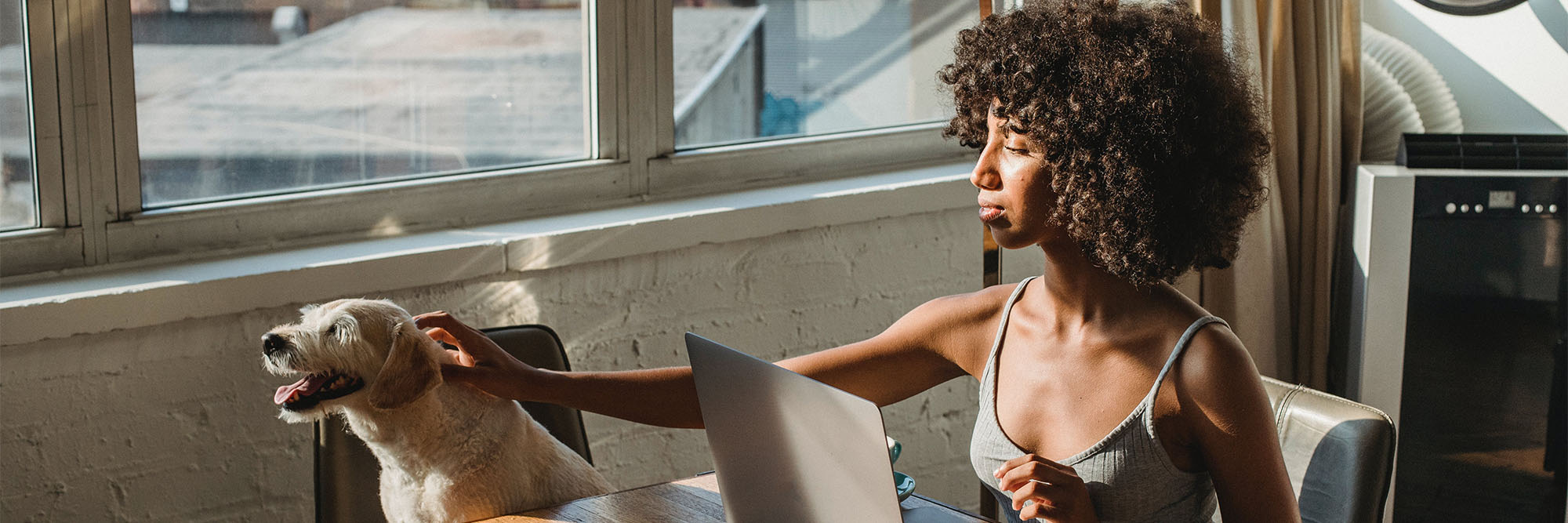
With the rise of single-person households, the need for connection within the home takes center stage. Designers are responding by emphasizing kitchen islands as social hubs and living spaces that seamlessly blend indoor and outdoor environments, fostering easy gathering and a sense of belonging.
“With solo-living on the rise, Americans are seeking connectedness to loved ones and their communities.” — The Trends Outlook Report
3. Comfortable and connected living

Friendship remains a vital concept across generations, and spaces are evolving to reflect this desire for camaraderie and comfort. From expansive kitchen islands that double as dining areas to living rooms with doors that open onto patios, the focus is on fostering connections with loved ones and furry friends, with pet-friendly materials and durable designs becoming increasingly important.
“Designers can support the comfort and camaraderie occupants desire by creating opportunities for gathering in the home, incorporating pet-friendly products, and designing spaces for amusement and ‘eatertainment’.” — The Trends Outlook Report
4. Health & wellness
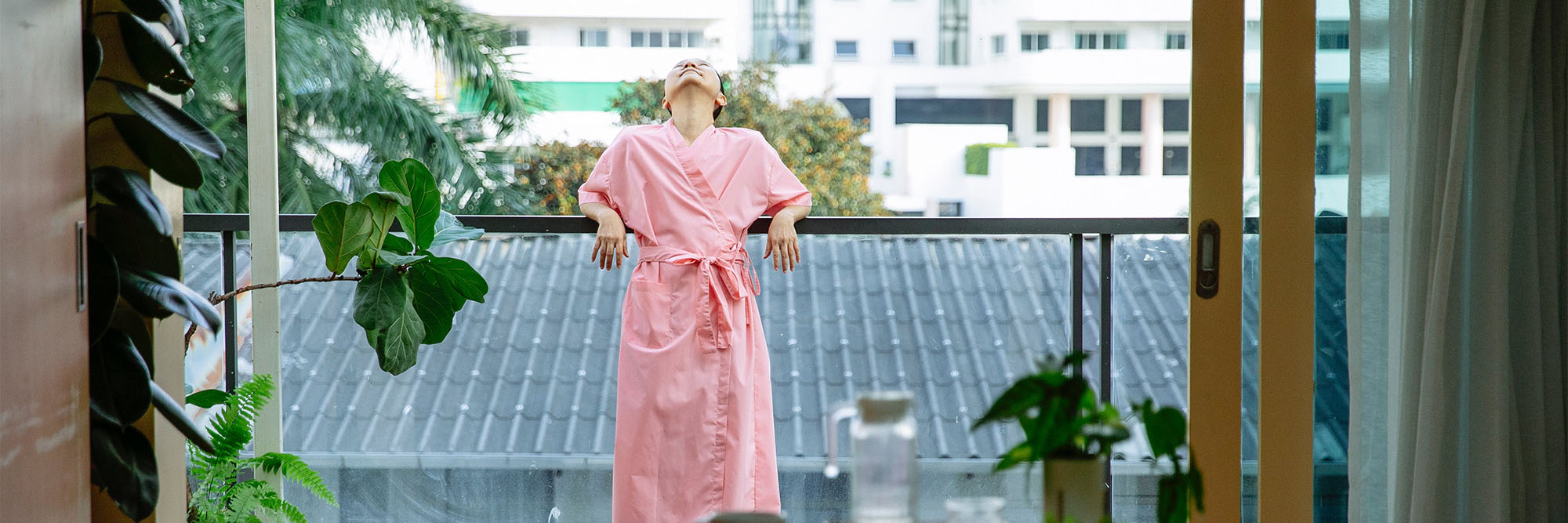
Wellness takes center stage in 2024, with consumers prioritizing natural, clean products and spaces that promote their health and well-being. Spa-inspired bathrooms and sleep-focused designs provide havens for relaxation, while the growing “sober-conscious” trend reflects a broader focus on mindful living.
“Consumers will spend more on the products that improve their health and wellbeing. Designers must consider this self-care push, including harnessing sleep data to support more rest for occupants.” — The Trends Outlook Report
5. Quiet luxury
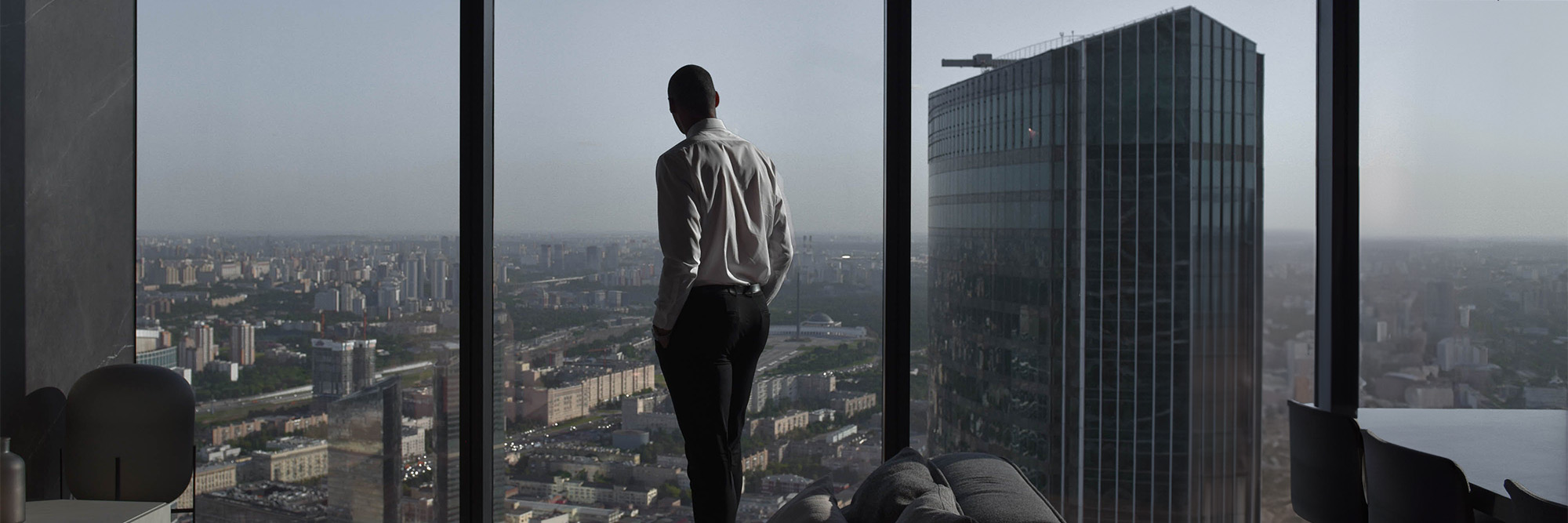
Luxury takes a shift towards personalized experiences and meaningful connections. Consumers are investing in timeless pieces that hold personal value and prioritize immersive experiences that leave a lasting emotional impact. This shift away from trendy items reflects a growing desire for sustainability and mindful consumption.
“Consumers seek a more low-key and personalized approach to luxury, investing in items that have more longevity and relevance—a more sustainable way to shop, as well.” — The Trends Outlook Report
6. Blurred lines in travel

The lines between living, working, and playing are blurring. Alternative accommodations and hybrid work models necessitate multifunctional spaces, from “eatertainment” areas in residences to co-working spaces and rooftop bars in corporate offices. Design becomes multifaceted, catering to the shifting needs of a world where work and leisure seamlessly blend.
“Alternative accommodations are on the rise, with guests blurring the lines of living, working, staying and playing.” — The Trends Outlook Report
7. A custom approach to today's workplace
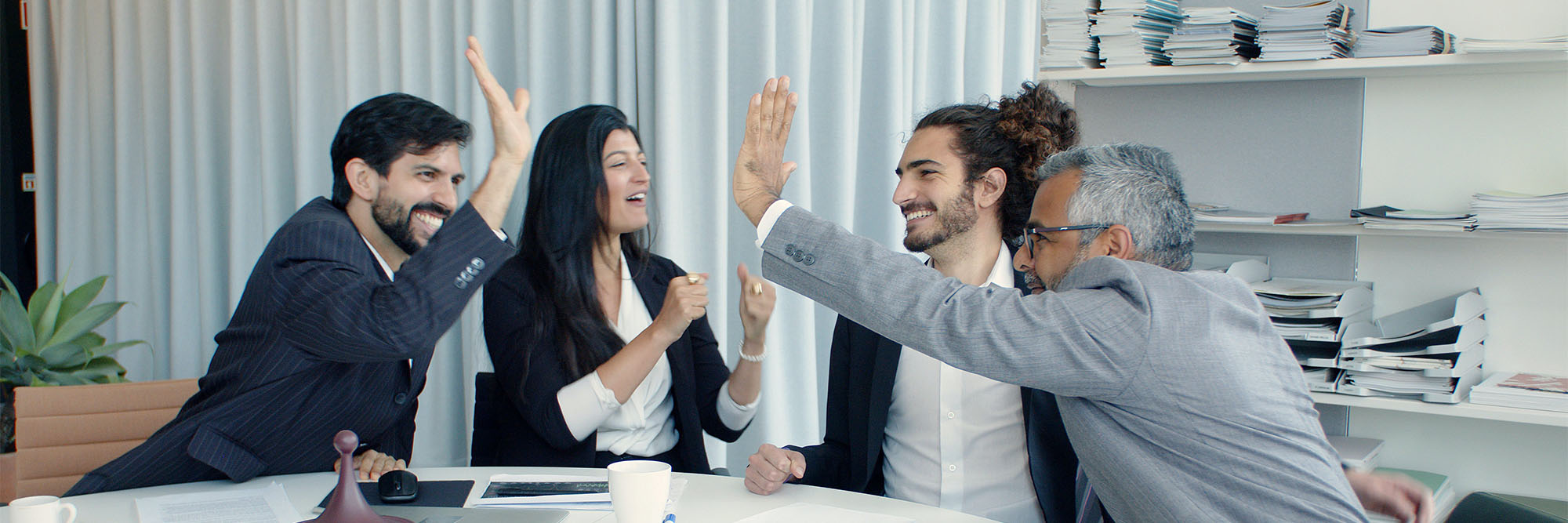
Hybrid work demands a personalized approach to office design. Designers need to cater to the diverse preferences of different generations. Millennials embrace the flexibility of hybrid schedules, while Gen Z and Boomers often seek the professional mentorship and social interaction found in the office environment.
“Designers have the opportunity to help organizations create a more personalized approach to their hybrid work strategies, with physical spaces that support employee productivity and balance collaboration with focus.” — The Trends Outlook Report
8. AI technology
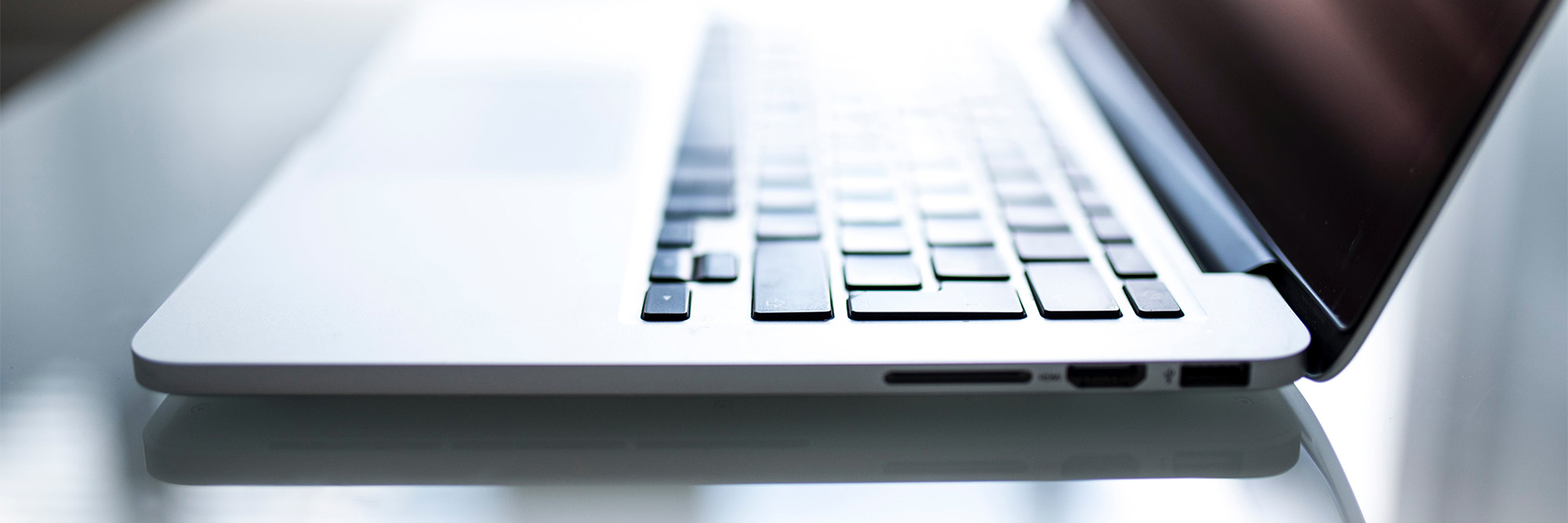
Artificial intelligence revolutionizes the design industry, offering personalized experiences and optimizing spaces for functionality and sustainability. Generative AI creates floor plans, designs, and even manages energy efficiency, pushing the boundaries of what design can achieve.
“Generative AI applications are being used in a variety of applications, such as generating floor plans, design iterations, occupancy and energy models, among other solutions; others are using it to increase autonomy and create experience-driven design.” — The Trends Outlook Report
9. Digital marketing in design

Mobile advertising reigns supreme, while social media platforms become a haven for thought leadership and employee advocacy. Businesses embrace their own employees as brand ambassadors, leveraging their voices to reach new audiences and influence marketing strategies.
“Employers, including designers, can look to their own workforce for advertising, as many employees are communicating and advocating for their brands on social media. ” — The Trends Outlook Report
10. Extreme weather event and climate impact
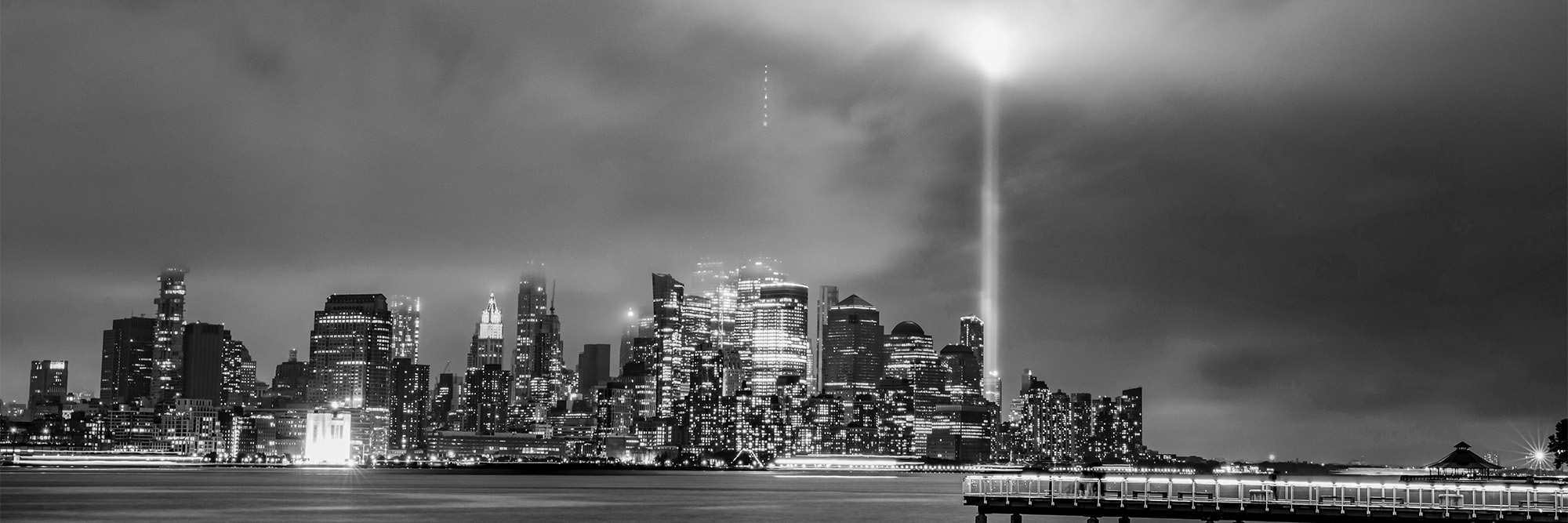
Climate change becomes a tangible reality, influencing consumer choices and design trends. With the increasing frequency of extreme weather events, sustainability takes center stage. Consumers support renewable energy solutions but remain hesitant about drastic lifestyle changes, creating a challenge for designers to create environmentally conscious spaces that resonate with diverse needs.
“Two-thirds of Americans say that they've experienced at least one of the five types of extreme weather (heat wave, flood, drought, wildfire, rising sea level), in the past year. Americans support making changes to address global climate change and prioritizing renewable sources—and designers have the power to contribute to these solutions.” — The Trends Outlook Report
11. Sustainability rules

The future of work prioritizes high-quality, low-carbon spaces to attract talent and comply with changing regulations. Investment in sustainability tech surges, allowing for better metrics and reporting. Designers who can help clients meet their sustainability goals and create holistic environments that support individual health, community well-being, and environmental stewardship will hold a competitive advantage in the years to come.
“Designers who can help clients meet their sustainability targets of high-quality, low-carbon workspaces will have a competitive advantage. Recognizing the interconnectedness of individual health, community health, and environmental stewardship also pays a key role.” — The Trends Outlook Report
The Trends Outlook Report is available for download for ASID members and is available to purchase on their website for non-members.
Related Stories
Adaptive Reuse | May 9, 2024
Hotels now account for over one-third of adaptive reuse projects
For the first time ever, hotel to apartment conversion projects have overtaken office-to-residential conversions.
MFPRO+ News | May 8, 2024
Multifamily rent growth approaches peak levels in April 2024
In its latest multifamily report, Yardi Matrix finds that the national average rent has increased for the second month in a row.
MFPRO+ Special Reports | May 6, 2024
Top 10 trends in affordable housing
Among affordable housing developers today, there’s one commonality tying projects together: uncertainty. AEC firms share their latest insights and philosophies on the future of affordable housing in BD+C's 2023 Multifamily Annual Report.
AEC Tech | Apr 30, 2024
Lack of organizational readiness is biggest hurdle to artificial intelligence adoption
Managers of companies in the industrial sector, including construction, have bought the hype of artificial intelligence (AI) as a transformative technology, but their organizations are not ready to realize its promise, according to research from IFS, a global cloud enterprise software company. An IFS survey of 1,700 senior decision-makers found that 84% of executives anticipate massive organizational benefits from AI.
AEC Innovators | Apr 15, 2024
3 ways the most innovative companies work differently
Gensler’s pre-pandemic workplace research reinforced that great workplace design drives creativity and innovation. Using six performance indicators, we're able to view workers’ perceptions of the quality of innovation, creativity, and leadership in an employee’s organization.
MFPRO+ News | Apr 12, 2024
Greystar becomes top apartment owner, manager, and developer in 2024
One firm set records for this year’s National Multifamily Housing Council Top 50 roundup of multifamily firms. Greystar now sits at number one in the NMHC’s lists for top apartment owner, manager, and developer in 2024.
K-12 Schools | Apr 10, 2024
Surprise, surprise: Students excel in modernized K-12 school buildings
Too many of the nation’s school districts are having to make it work with less-than-ideal educational facilities. But at what cost to student performance and staff satisfaction?
Multifamily Housing | Apr 9, 2024
March reports record gains in multifamily rent growth in 20 months
Asking rents for multifamily units increased $8 during the month to $1,721; year-over-year growth grew 30 basis points to 0.9 percent—a normal seasonal growth pattern according to Yardi Matrix.
Retail Centers | Apr 4, 2024
Retail design trends: Consumers are looking for wellness in where they shop
Consumers are making lifestyle choices with wellness in mind, which ignites in them a feeling of purpose and a sense of motivation. That’s the conclusion that the architecture and design firm MG2 draws from a survey of 1,182 U.S. adult consumers the firm conducted last December about retail design and what consumers want in healthier shopping experiences.
Industry Research | Apr 4, 2024
Expenses per multifamily unit reach $8,950 nationally
Overall expenses per multifamily unit rose to $8,950, a 7.1% increase year-over-year (YOY) as of January 2024, according to an examination of more than 20,000 properties analyzed by Yardi Matrix.



